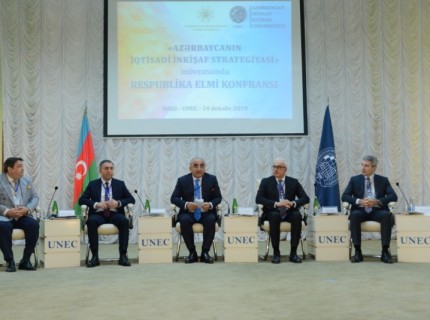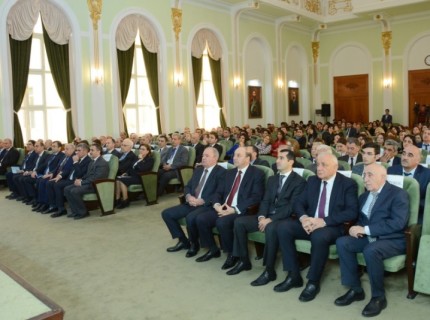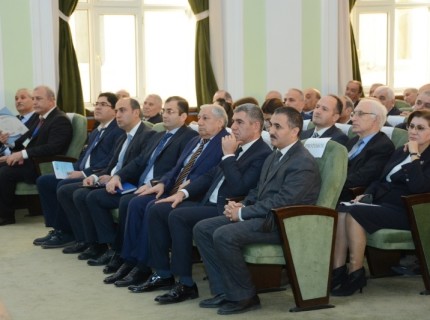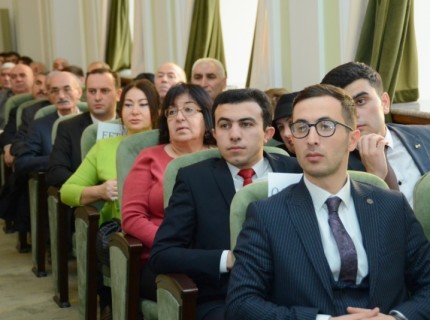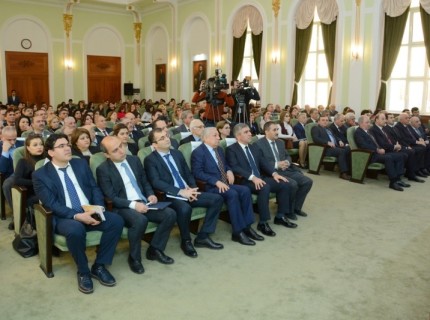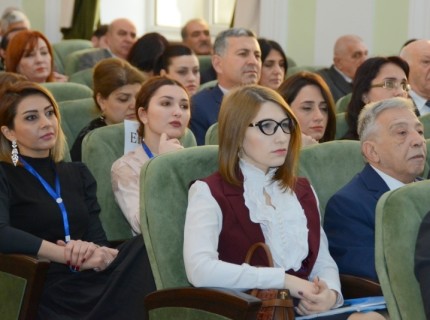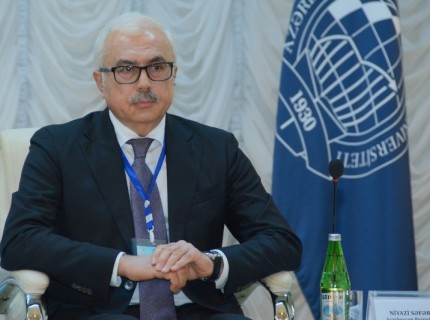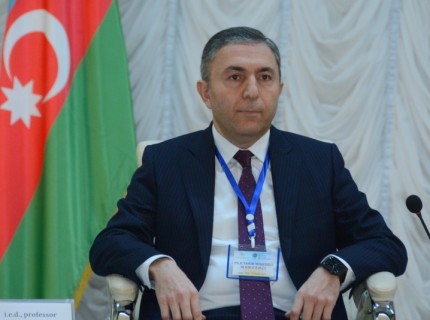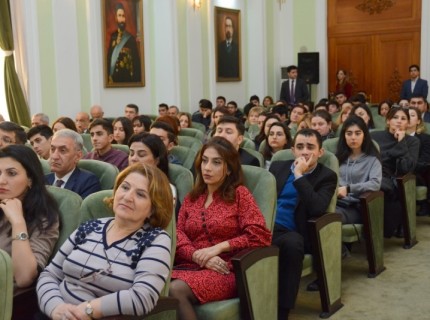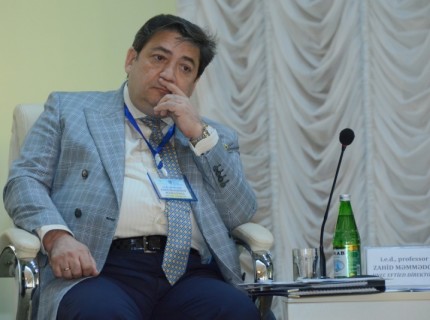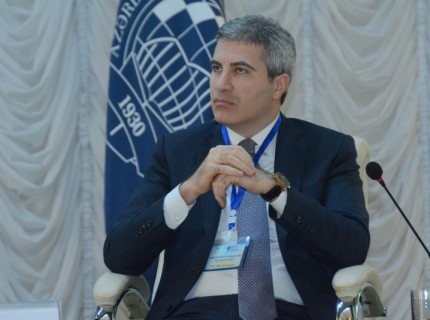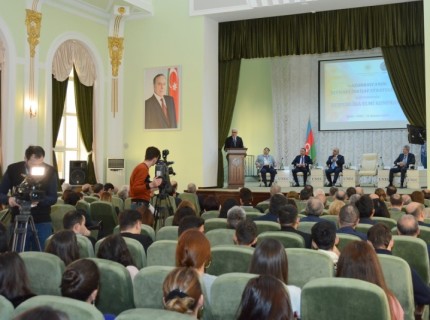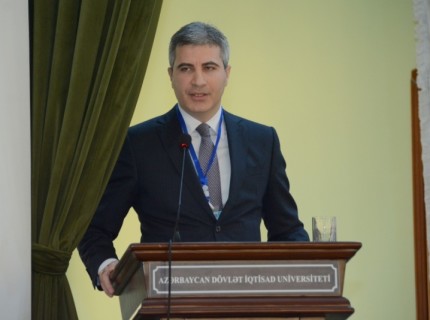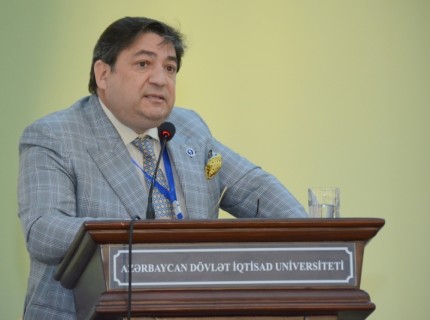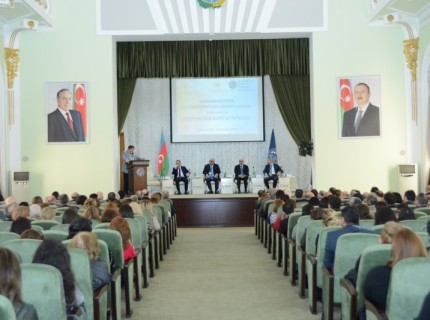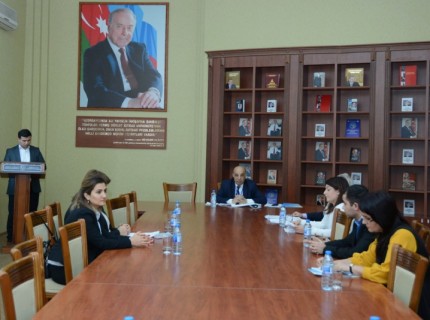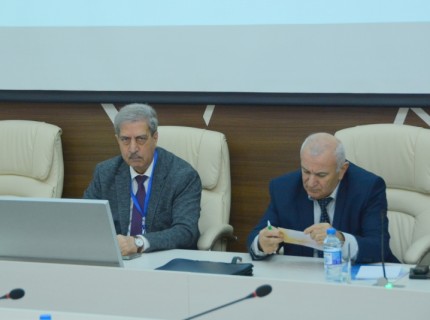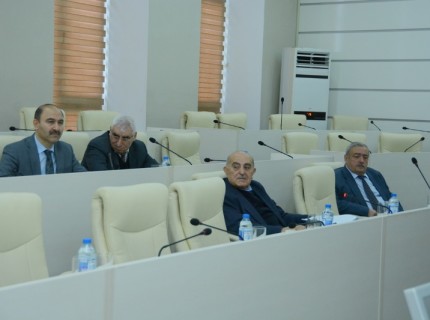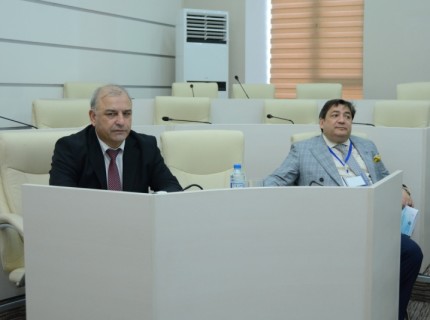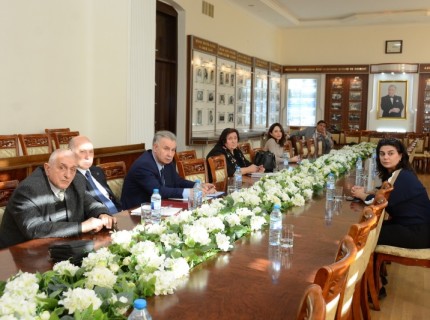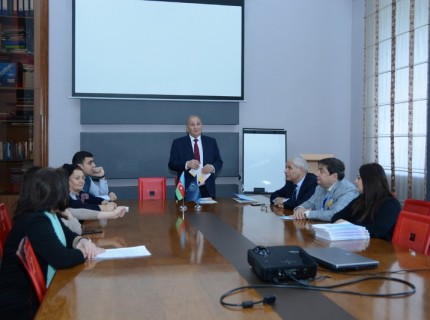Azerbaijan’s economic development strategy in UNEC scientific analyses
The Republican Scientific Conference on “Economic Development Strategy of Azerbaijan” has been held at UNEC. Officials from the Ministry of Economy, Ministry of Education, Ministry of Labor and Social Protection of the Population, well-known scientists and economists of the country attended the conference.
In his opening speech, UNEC Rector Professor Adalat Muradov drew attention to the strategic roadmap signed by President Ilham Aliyev on the development of various sectors of the country’s economy. He also said that the main purpose of the conference was to find new “drivers” that could analyze economic growth, and at the same time to facilitate discussions with academia and representatives of the real economy.
The rector who said that the future economic development of Azerbaijan had gone through the digitization of the economy, emphasized that the main issue in this area is the formation of human capital, with the necessary competencies, meeting the requirements of the digital economy. It was noted that the digital economy’s demand for production factors has changed, the productivity of these factors has significantly increased, and the change has manifested itself in more scientific areas. Adalat Muradov spoke about the importance of distance, adaptive, online, off-line education and mentoring activities needed by the digital economy. Referring to the successful implementation of UNEC certification programs for distance education, the rector said that distance education on bachelor degree at UNEC would be implemented next year. He also said that cooperation with St. Petersburg State University had been launched to bring adaptive education to the region, that UNEC would conduct non-specialized courses online and specialty subjects offline, and Turkey’s experience in mentoring as a pilot project at the International Center for Masters and Doctoral Studies was being implemented.
The conference also touched on the quality parameters that have the greatest impact on economic growth. Noting that UNEC has carried out research in this area, A. Muradov added that according to the results obtained the necessary measures hadn’t been yet taken to form the competencies required by the real economy. He said there was a need to radically change for the curricula, that changes were made to the II Specialty Group and that new academic standards would be applied at the university next academic year.
Deputy Minister of Economy Niyazi Safarov said today a new political and economic history was written in Azerbaijan under the leadership of President Ilham Aliyev. Deputy Foreign Minister said that one of the most important issues for social and economic development of the country is foreign policy. He noted that the country’s economy has tripled in the last 15 years, social policy has been put forward, and the country’s revenues have been more focused on the development of these areas. N. Safarov spoke about the priorities of Azerbaijan’s economic development strategy. He said that new approaches were introduced in the country’s economic development model and that the reforms were mainly related to innovation, technology and non-oil sector development.
Then MP of 5th convocation Tahir Mirkishili made a speech on “Public administration and economic development: modern technological trends”. The MP, who has called the 21st Century “Century of Technologies” spoke about the importance of online education. He said that UNEC has taken serious steps in this direction, and that successful projects and research have been implemented.
Undersecretary of the Minister of Labor and Social Protection of the Population Mustafa Abbasbeyli spoke about the social reforms of 2019. The ministry official said large-scale social policies were being carried out in the country, and that the budgetary funds in this area were increasing year by year, the welfare of the population was rising, unemployment and poverty were eliminated.
Then Professor of Sumgait State University Shafa Aliyev made a speech on “Strategic approaches to diversification of non-oil industry and increasing export potential in Azerbaijan”, Professor Zakhid Mammadov, director of UNEC Department of Organization and Management of Scientific Activity spoke on “Knowledge-driven innovation-oriented universities: new challenges and perspectives”.
The conference continued its work in four sections. Accordingly, discussions were held, and reports were listened to on various topics in the sections “Modern state and problems of development of the economy of Azerbaijan”, “Economic reforms: development and economic diversification of entrepreneurship”, “Modern financial system of Azerbaijan: new challenges and prospects” and “Azerbaijan in the global economy system: new opportunities and perspectives”.
